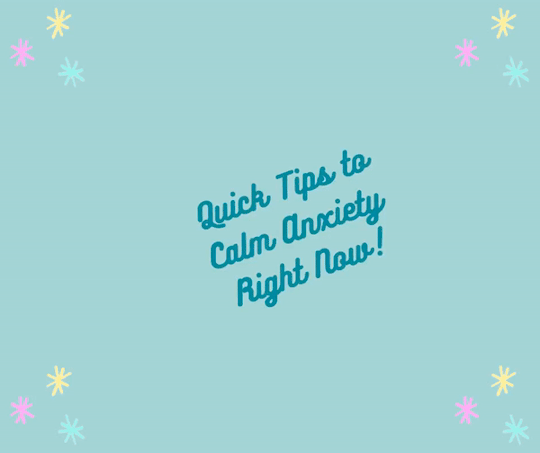Text
The Benefits of Procrastination and The Costs!
What I’d like to do right now is
ride my bike,
swim,
do yoga for the second time today,
meditate,
eat cookies and drink iced coffee even though its 2 p.m. and it may keep me awake tonight.
I would also like to work in my garden.
Any garden, really.
I’ve been known to pull weeds at the neighbors house just because I see them. I’m itching to redo an overgrown patch in front of my friend’s lovely lawn, because its a mess and I could make it better in an hour.
I’d love to take off this afternoon and play. I’d drive to the mountains and hike. Or I could bake something with all those overripe bananas I’ve been saving in the freezer.
This is called productive procrastination, and I am so good at this it should be call Lisa’s favorite work avoidance strategy.
Who needs to work all the time? Not me.
Once I have the thought, “on Thursday, I’ll write a blog”, the intention is out there and the avoidance begins!
I have been so productive today.
I went to the grocery store, returned an item to the amazon drop off site, set up home and auto insurance policies, donated some old glasses, took a long walk at Wash Park, had a long talk about one of my personal challenges, and even meditated.
And now you and I are just talking about what happens when we want to avoid a job we’ve given ourselves, or worse, a job someone else has given us.
Luckily, I came across several articles on procrastination in my in-box just today.
Looks like its not just you and me suffering from this.
What kind of procrastination do you fall into?
Arousal procrastination – good for people who love the thrill of getting something done at the last minute. Extra points if you stay up most of the night before your deadline!
Avoidant procrastination – for when you fear the outcome of your task. You may think it won’t be good enough or that someone will criticize you.
Impulsivity and Distraction procrastination – best for those who just don’t feel like adulting today and are willing to wait and see if there are any real consequences of their behavior.
Productive procrastination – my favorite. Working on other tasks to avoid the one that you are dreading.
The cost of procrastination?
While, I love to have fun with this, it’s not a pretty picture.
Procrastination habits can lead to more anxiety and a slow decline into depression.
These feelings can drive procrastination and increase after procrastination.
Is it a cycle you’re caught in right now?
Most of us do get caught in the procrastination cycle sometimes.
I’m not going to tell you how to avoid procrastination like most of those articles do.
Why not?
I suspect procrastination is just the tip of the iceberg and there are other things you need to talk about, the real issues causing you emotional pain, stress and sleepless nights.
Trying to avoid feelings is what keeps you in your procrastination cycle.
Procrastination may be just one of the problems.
Therapy can help.
If you’d like to talk to a real person who has (mostly) found her way out (for now), please sign up for a free consult, for a session today.
0 notes
Text
Grief and Relationship Loss

If there’s something worse than losing the love of your life, I can’t think of what it could be.
Just thinking that that might happen feels devastatingly sad. I can feel my body collapse.
I’m remembering the loss of a relationship that I thought was the most important one of my life, at the time.
Those losses left me traumatized for decades. So, if that’s where you are, I understand.
Looking back, I wished that I had reached out for professional help right away, and for as long as it took, to get my zest for life back.
For a long time, I resisted even the phrase “love of my life“ because it was so painful.
When I finally did find a therapist to help me unravel this grief and loss, the course of that took a very specific path.
Now, I’m not thinking that everyone’s recovery from a relationship break up will look just like mine. I know there will be some common elements.
This was years ago, so bear with me. Here’s how it went.
I found a therapist I liked and trusted (very important part).
I started processing a most recent separation, spending plenty of time, blaming my ex.
After I worked my way through that, I was able to begin to see some of my own patterns of anger, disappointment, and distancing.
Feeling some relief about that loss, I moved my way backward to other losses and betrayals.
I learned that some of the ways I had coped with childhood issues were not working in my adult life, like keeping quiet, avoiding conflict and putting up with less than I deserved.
Your losses may be different. Loved ones leave or die even if we do everything right. It’s not your fault.
Your needs in recovering from loss may be very different than mine, but there are some things we probably all need.
Someone to listen.
Emotional support.
Someone to put this loss in the context of our whole life, to help us see that there is more than today, this week, this painful month.
Someone to see you now.
Someone to see you into your future.
I made my way into my future. Fell in love again.
Learned to see love and life for the joys, the ups and downs that grow us into the person we want to be.
I found a new relationship that is now an old relationship, 18 years and counting.
This new love is better than that old love-of-my life in so many ways. I’m better too. More wisdom, more relationship skills, more resilience.
If you can believe in that, you have a better chance of creating it.
Want help in living through your loss and making room in your life for the new you?
Always here to help you grow and give you support. Call for an appointment orsign up for a free video consult right now!
Lisa Yaeger, LPC.
0 notes
Text
Loving Yourself Through the Slow Times

What can you do when you’re feeling stressed, unmotivated, or derailed by things out of your control?
Does this picture fit for you?
You’ve accomplished some important goals.
Your life is pretty good but you’re uninspired, a little bored, a little restless.
You’re waiting for the next thing – a job, a new relationship, a new adventure.
Or you don’t expect any big changes but you want something to provide some joy and excitement.
When you’re in this place, I recommend that you work on two things:
The inside and the outside.
First, the inside.
Take some time to think through or write about how you want to feel about your life and about yourself.
Try to see your internal world of many “parts” who revolve around your inner “Self.” Some parts are unhappy, lonely, or angry. Some may be content to let life be just as it is. Some are pushing for a big change. Your “Self” is you, who notices these parts with different feelings and helps them work together. Most importantly, you love them all. Be kind and accepting of all your parts.
Find some activities that help you feel calm and centered every day. This might be meditation, yoga, an exercise you love, music or other media.
Then, the outside. Your influence on the world, and the world’s influence on you.
Do some thinking or some writing about what you’d like to be doing with your life right now. Really get detailed, imagining about exactly what you want. This is not magic, its mindset work!
Make a list of three small steps to move toward the things you imagined. Take small actions to help you get moving. Try not to get attached to the outcome. Life will unfold as it will.
Spend some time with people who are energized, motivated, and inspiring. Sometimes you can do this in person. Sometimes it has to be more remote – media, books, being the audience.
Get out into the world in other ways. New experiences give us a more open mind, stronger emotional system, and a sense of being a part of something bigger than ourselves. Trying a new sport or attending a theater event might not seem like a part of your “work” but it is because it helps you grow!
If your life is slow now, it’s probably an opportunity to grow in some new ways.
Don’t waste the opportunity!
Lisa Yaeger, LPC.
Always here to help you grow and give you support. Call for an appointment orsign up for a free video consult right now!
0 notes
Text
How To Improve Your Relationship When Your Partner Isn’t Helping

Is it your relationship that makes you happy?
When its not going so well, is it your relationship that makes you unhappy?
For many people the answer is yes. Definitely yes!
If you are like many of my clients, you may be frustrated because your partner is not willing to come to couples therapy with you.
If they don’t want to come, you’re stuck, right?
Actually no. You are not stuck!
You can do so much to help your relationship by learning good relationship skills yourself.
In fact, I love teaching the motivated one (is that you?) how to see differently and act differently.
And guess what?
It works.
You learn and your relationship begins to grow.
Are you wondering what you’ll learn and how it helps? I’ll tell you.
(Some of this you might already know. Because I know that you’re the motivated one.)
Since I’ve become a well-trained couple’s therapist, I’ve noticed a shift in how I work with individuals. I still tune in and feel empathy for you, my client. I’m still on your side you might say.
I’m your advocate. But now, I understand how your actions are probably affecting your partner. I can help you predict it, right there in our session.
If I can help you slow down and understand the dynamics of what’s happening in a tense conversation, when you say that and they say that…
You can see where it’s going.
You will begin to see how to get a different result.
We start with understanding you, where you come from, your feelings, your goals.
Together, we work on helping you regulate your emotions and communicate better than ever.
You can learn to:
Be brave in speaking up
Be clear on what you want to say
Help your partner be able to hang in there and listen to you
Know when to listen to your partner
Learn when its time to look for solutions and when its too soon
If you are ready to work on some of this with a coach or therapist, sign up for a free 20 minute video consultation or call me.
In the meantime, here are some steps to get you started.
I recommend doing some writing about these questions.
What experiences do I have in my history that make this current situation more tense, scary, or emotional for me?
What do I know about my partner that might make this harder for them?
Am I able to talk about one problem at a time, or are there other things that I won’t be able to resist throwing in there once I start this discussion?
I want you to know, I have a plan. And part of the plan is that you get to be happier.
You get to be the center of your own life again.
In spite of whether your relationship is thriving or not.
And because it can be.
If you are ready to make some changes in your life and in your relationship, Call me today for an appointment and I’ll help you figure it out.
0 notes
Text
When Alcohol Is NOT Stress Reliever

I woke up with a headache again this morning. Red wine. And not very much of it either.
I feel angry and frustrated. I tell myself, I’m never drinking again. I feel silly that I can’t just have an evening drinking a moderate amount of alcohol. Well, truthfully, I can and I do. But then I don’t sleep well. I feel awful in the morning and I swear off alcohol forever.
Until dinner time and I want wine with dinner. And on Friday, I want wine for Happy hour with my sister or my partner or my friends.
There are so many reason to drink wine.
For you it may be Vodka. Or beer. Or the ubiquitous Margarita. Name your poison, they say. Isn’t that interesting?
Eighty-Seven percent of adults drink alcohol at some point in their lives. When you look through your own filter, it may look like everyone else is handling it just fine. They don’t seem to worry about it. Everybody over does it sometimes. We have a dozen names for a hangover.
So I asked myself, why am I so unhappy in the morning? Why can’t I change this pattern if I want to. I must want to, because I keep wishing I would. Every morning.
I’m not alone in this. So many of my clients, mostly women, especially now in the covid pandemic, are suffering and worrying in this same way.
Some are even reporting scary numbers in their liver tests. Weight gain is the complaint for others. We work so hard to be healthy by exercising, eating well, avoiding unnecessary drugs. Alcohol is getting past our defenses like nothing else.
So what’s going on here? These smart, healthy, high functioning human beings share this common struggle.
Are we addicted to alcohol? Most of the women I’ve sat with do not think they’re addicted. But they admit they’re not quite in control either.
This keeps coming up in my counseling practice. And in my life. So I decided to do some research. It’s time to buy some books.
Reading books has been my go-to research habit for years. Now, of course, I search the internet. You too?
Strangely, you may not talk about your alcohol concerns with your friends and family. Do you worry they’ll judge you? If you say, I’m not drinking this week, they may hold you to it? Or try to talk you out of it? Then, if you fail, the shame will be uncomfortable.
Do you wonder if you’re one of the people who really does need to cut back on alcohol? Do you have health concerns? Do you wonder what you said or did last time you drank too much? Are you driving when you shouldn’t be? Is your partner asking you to cut back or telling you he/she is concerned about your drinking?
While I can’t offer a treatment program for alcohol addiction recovery, I do offer the support you need to walk your way toward a healthier relationship with alcohol. And if I think you need more help, I’ll steer you in that direction. What I won’t do is take away any of your power to make choices. You choose your path. I’ll give you the tools.
I did find a book, actually, and it helped me get a whole new perspective. Then I discovered that many of the skills I was already teaching my clients to help them overcome anxiety and depression were also useful in changing their response to alcohol. I’m making it my job to know more about alcohol and how it works.
Alcohol is an addictive substance for human beings. For all of us. But that doesn’t mean that everyone’s body and brain respond in exactly the same way. Maybe it time to figure out how it works for you.
Could alcohol be interfering with living a life you love? Call me today for an appointment and I’ll help you figure it out.
0 notes
Text
Free Your Voice

I have client who has trouble speaking. Sometimes, she says, she doesn’t feel like she’s allowed to talk about certain things.
She did not chatter away, as a teenager, processing every conversation, event, thought and endless feelings like I remember doing. I asked around. Nope, many of my friends, now adults, didn’t get to do that either.
There were some things I would never talk about. Even though I chattered, I didn’t mention to my friends that I worried about my Dad drinking too much. I didn’t say I was ashamed because I lied sometimes. I didn’t ask if any other girls felt weird when boys said ‘call me when you’re 18’ and I didn’t know why they would say that. I played it cool.
Now, my personal value is that we are allowed to talk about everything that concerns us. We do not have to play it cool.
Not sure its safe? Let’s try this disclaimer. In the right setting, with good timing, and shall we say, good manners, you get to speak your mind. You get to say whatever is pressing to get out.
And even with that value clearly identified, it’s hard to speak up.
You may want to talk. You may plan to talk. But something shuts you down. Sometimes instead of all you want to say, you hear yourself saying it’s ok. I’m fine.
Or nothing at all.
Sometimes confusion takes over. A foggy, unsettled feeling. Confusion rescuing you from danger. From the unknown. From saying the wrong thing.
Many of us learned at an early age that speaking up was
Not allowed
Punished
Put down
Dangerous
Misunderstood
Not worthwhile
Self indulgent
Scary
Even in what would otherwise be considered a good, loving home, you may have grown up with the subtle message that your point of view was not important. It was better to just keep quiet. Your parents may have been too busy to listen.
There may have been some topics that were taboo. Could you talk about your crushes? Unwanted attention?
or the opposite, why some kids wouldn’t even acknowledge you?
Could you ask questions?
If the home you grew up in was not so good, even abusive, the message to keep quiet and fly under the radar was stronger still. Questions were never a good idea.
So now, as an adult, it’s hard to speak up when you want to, especially about things that are important to you, but even about your thoughts and feelings.
We either do it haltingly, sparingly
Or
Angrily, with the force of a hurricane and with about as much fine tuning. Either way, we don’t feel very effective. We aren’t very effective. We aren’t understood.
I don’t know about you, but what I want is someone to listen, listen and listen to me. Until I am done and feel heard.
So, what can you do to start talking when you are one of those people who feels unheard and sometimes unseen?
What can you do when you have something you really want to say to someone, but you don’t know how to start?
Here are some ideas, and then, an invitation.
Start with your own emotion. If talking is hard for you, no doubt you are having a fear reaction before you even start. Take some deep breaths, scan your body to find the tension. Go slow and shift you attention to calming thoughts. When you feel calm enough begin to talk.
If what you want to say might be a little stressful for the other person, ask if this is a good time. Getting their consent to a conversation helps increase the odds of success. You may speak very well, but if the other person is not paying attention or unable to really be present, your attempt may fall flat. You’ll interpret that as proof that you can’t communicate. Not the positive reinforcement you want!
If in-person is tough right now, use your phone. The rules have changed. It’s much better to have a timely phone conversation than to avoid talking about important things until you can be together. Many people are isolated right now, for good reasons. Don’t make it worse for yourself.
When you’ve said something that feels risky, don’t forget to pause and listen to the reaction that comes from your listener. I remember when I first started to speak up, it was a little like a hit and run. I wouldn’t know how the other person reacted. I was too afraid to stay and see. So pause. Listen. Breathe. You can end the conversation if you need to, but try to tolerate a bit more uncertainty than usual. Sometimes the tension will resolve if you hang around a little longer.
Here’s the invitation I mentioned. Consider talking to a therapist.
Some of my most successful clients came to see me because they had trouble talking freely.
At first, they weren’t sure what to expect. Often the first session surprised them. In this safe, structured setting, they began to relax and talking became easier. Sometimes we uncovered the roots of their social anxiety. Sometimes, I just helped them make progress in overcoming it bit by bit. Low pressure. Good results.
If you want to talk, I will listen, listen and listen until you feel heard.
Call today and we’ll talk about an appointment.
0 notes
Text
Is Anxiety Keeping You From Sleeping?

Do you wish you could sleep like you used to? Do you know you aren’t getting enough sleep, but haven’t done anything about it? Sleep problems are some of the most frustrating symptoms of anxiety and depression. There are things you can do to help yourself sleep better. The habits we fall into slowly over time are setting us up for sleep deprivation.
I’m always surprised when someone tells me they sleep well.
In fact, I’m envious. Somewhere after my 20’s, perfect sleep began to elude me. I’ve been searching for the solution and I’ve gathered a list of strategies to get better sleep. Not perfect sleep. Better. Try some of these if you need better sleep too.
– Create a bedtime ritual to encourage your mind and body to slow down and get sleepy.
– Evaluate your bedroom. The best bedrooms for sleep are dark, cool, quiet and free of clutter. Make the changes that are realistic for your life and budget. Negotiate with your partner and pets to get more serenity in the space you share.
– Turn off unnecessary lights in your home a few hours before bedtime and keep other lights low. Your body responds to light with wakefulness.
– Limit caffeine and other stimulants. Use caffeine only within 4 hours of waking. If you are a night sleeper, for example, you may need to avoid caffeine after 12:00 noon. If you’re a day sleeper adjust for your sleep/wake schedule. Don’t forget all the products that include caffeine, especially chocolate, coffee, tea, soda, and energy drinks.
– Avoid alcohol several hours before bedtime. Alcohol may help you fall asleep, but it decreases sleep quality and often causes you to wake up within a few hours and struggle to fall asleep again. If you drink alcohol, experiment with this. You may find the you sleep better when you don’t drink any alcohol at all. One drink may not interfere with your sleep, but more usually does. Find out what works for you.
– Limit screen time. TVs, computers, iPads, phones, video games and other screens emit blue light which suppresses melatonin, the hormone that promotes sleep. Try turning off electronics 1 or 2 hours before you want to sleep. Experiment to see how much time your brain needs to wind down from screen time. Try some evenings that are free from screens after dinner.
– Create a consistent sleep schedule. Get up at the same time each day and go to bed at the same time each night, even on weekends.
– Go to bed when you are sleepy. This may seem to conflict with the tip above. You may need to start with getting up a bit earlier, to promote earlier sleepiness.
– Avoid naps when you are trying to reset your sleep pattern. This may not apply to you if you have young children at home who wake up at night or if you are on a nighttime work schedule which routinely causes sleep deprivation.
– Meditate. It helps your mind be calmer sooner so that your stress level does not continue to rise. If you ignore that feeling of rushing and pushing to check off the next goal, you may find yourself with a level of wakefulness at bedtime that is difficult to turn off. Meditation helps keep this from going unchecked.
– Exercise early in the day.
Do you fall asleep, but can’t stay asleep?
If you fall asleep easily at first but then wake up afterworld, you are not alone. Many sleep experts says its normal to wake up between 2 and 4 a.m. Falling asleep again can be difficult, but you can train yourself to get better at it. Try a few of these tips tonight to see if they make a difference for you.
7 easy tips to go back to sleep!
1. Don’t look at the time when you wake up. Turn your clock to the wall. Resist the temptation to pick up your phone.
2. Stay in the dark. Don’t turn on the TV or computer. You want to signal your brain that it is not time to wake up. If you need to get up to use the bathroom, as most of us do, walk carefully with just a little light.
3. Gently tell yourself that you are going back to sleep. It’s not time to wake up.
4. Rub the top of your ears. This causes sleepiness.
5. Rolling your eyes upward with eyes open or closed signals sleep to your brain.
6. Don’t toss and turn. Use progressive muscle relaxation instead. Tense muscles and then release. Start with your feet and work your way up to your face. Usually you will be asleep before you finish.
7. If you lay awake longer than 20 minutes, get out of bed and sit. Consider writing your worries down. Get back in bed when you begin to feel sleepy.
Try any or all of these for a few weeks. Use what works for you.
To visit more blogs please, click here.
2 notes
·
View notes
Text
Yoga Therapy in Denver, CO

Are you frustrated with never quite resolving the problems you’ve been struggling with for a long time? Do you wish you could change some of your habits and beliefs?
Having been a licensed counselor for over 20 years, I naturally believed that talking about problems was the way to make change happen. I signed up to learn Yoga Therapy thinking that it would be a nice way to combine talk therapy with some calming techniques. And it is! But it’s so much more!
I started my training in Yoga Therapy (the Amrit Method of Body Psychology) with a heavy heart and fear that I was soon going to have to make some big life changes. I did not want to “blow up my life,” but I was afraid I might have to.
So, I had my issue in mind. I didn’t tell anyone.
My Yoga Therapist, a fellow student, took me through a Yoga Therapy session. (These yoga poses require only beginning yoga skills.) In the end, it was very relaxing. And my big scary issue was “all better!” I was amazed! I loved that I didn’t have to talk for hours about this problem to solve it.
And this was Yoga Therapy with a student therapist! I can promise you even better than that because now I am a trained yoga therapist.
For your Yoga Therapy session I will weave my counseling skills, yoga, meditation, psychology and body awareness together to help you overcome the things that hold you back from living a life that you totally love.
In our Yoga Therapy session, you will start with an issue – a mental, emotional or physical problem where you are stuck. You will have the option to share the details with me, or not.
Anusara Elements Yoga Certified
Amrit Method Yoga Therapy
What could your life be, if you could take steps to overcome anxiety, trauma, and stress?
Call today and we’ll talk about an appointment.
0 notes
Text
Denver Mental Health Therapist

Are you feeling frustrated with your life? Do you wish you were different?
If something is stopping you from enjoying your life and feeling like your best self, you are in the right place.
I’ve been a therapist for over 20 years and have narrowed my focus to areas I really feel like I can make a difference, where my creativity and yours work together to get you on the path to healing and peace.
When that happens, your energy will improve, your outlook on life will open up, and you can feel happy again!
I like to work with people on their most stubborn hangups. You know, those things that hold you back from living the life you love. For you that may be anxiety, stress, overwork, trauma or frustration with your relationships. You may feel like you should have figured it out already. Finding your way in life is a big challenge! Just when you think you’ve got it, the road turns and you’re spiraling down.
My goal is to listen and understand, and then give you tools to help you get back on track.
We are living in a time where a new understanding of the brain, body and emotions is unfolding every year. I love learning new techniques to help my clients get the results they long for, whether that is less anxiety, healing trauma, or boosting your mood and optimism or combating stress.
Recently, I’ve moved to the Denver area where I enjoy exploring the city, gardening, hiking, yoga, parks, restaurants, music, meeting people and hopping the light rail to new areas.
My office in the Platte Park area is tucked away in a private corner. Counseling clients often grab coffee or lunch on Old South Pearl Street shopping district, before coming in for a relaxed hour or special extended session. You won’t find a sign out front, we aim to provide professional and very confidential counseling services so you can open up and not have to worry.
MASTER OF ARTS COMMUNITY COUNSELING Adams State University
PROFESSIONAL COUNSELOR STATE OF COLORADO License #1607
AMRIT METHOD YOGA THERAPY
EDMR
MINDFULNESS
TRAUMA RECOVERY
Connect with Lisa now!
2 notes
·
View notes
Text
8 Quick Tips to Calm Anxiety Right Now!

When you notice anxiety, stop what you are doing and spend some time trying to calm the reaction you are having. First, let yourself feel it. Give it some attention. Trying to ignore those feelings will only cause them to intensify.
1. Put your hand on your heart and say to yourself “May I be kind to myself in this moment”. Breathe slowly for 7 breaths.
2. An anxiety attack or upsurge of anxiety feels like an emergency, but it is NOT. Say to yourself “This feels like an emergency but it’s not an emergency” “you will be ok”.
3. Movement helps. Walk around. Do some stretching. Run in place. Jiggle your legs. Dance.
4. Making eye contact helps. Try this: Sit with your chair facing your partner and close enough to hold both hands. Make eye contact and breath. Talk if you want to. Laughing is allow! It can feel vulnerable or embarrassing, but it can also reset your nervous system to a more calm state.
5. Touch someone. If you have a safe person around, let them help you in a way that feels safe. Hold hands. Hug. Or just sit side by side.
6. Take 5 or more deep breaths. Yes, everybody says that. Because it often works. Deep breaths calm the vagus nerve. This is the part of your nervous system that counteracts the emergency signal. Your body has a program for calming down. You can learn to use it.
7. Turn on your self compassion. Imagine yourself as a child. Send love to those hurting parts. Say “I will take care of you” and “I won’t abandon you”.
8. Bring to your mind an image of a safe place or a safe person. This will help calm the uncomfortable feelings in your body. Practice this to see which images help shift your body in a positive direction.
If you’re ready to get some help, call me today. Or send an email. You don’t have to handle this alone. Your life can be so much more.
7 notes
·
View notes
Text
Individual Therapy in Denver, CO

Do you wake up in the morning tired and dreading the coming day? Do you find yourself suffering from the same frustrations again and again? Do you know your life could be so much better if you could just make some changes? Or if you could just figure out how to accept what you can’t change?
I’ve been there.
I’ve developed a method for individual counseling that will get you back on track. I have helped many clients overcome anxiety, depression, and trauma to create a life they love. And I’ve done it for myself.
Even if you’ve never been diagnosed with anything, or thought of yourself as someone who needs therapy this program can help you change your life. We all struggle sometimes. The right help at the right time can save you years of frustration.
Individual Counseling can help.
Talking to a therapist can be like talking to a wise, generous friend who has time to hear your story and knows how to help you heal.
It’s not just talk.
HERE’S WHAT YOU CAN EXPECT IF YOU DECIDE TO WORK WITH ME:
Understanding how your early experiences play a part in how you feel today.
Acceptance and encouragement.
Questions that help you develop insight.
Mindfulness training.
Yoga poses and body awareness training.
EMDR for trauma and changing beliefs do not serve you anymore.
Understanding the parts of your mind that are not serving you and helping them get new jobs!
Techniques to overcome anxiety and mood problems.
A therapist who practices what she teaches. I’m on the journey too.
The most important qualities to look for in a therapist are respect, safety and understanding. This is a gut feeling. When you have that sense of safety, you will be able to open up your creative side, learn easily, and move beyond your well worn patterns that have you stuck. You have this ability in you! I will work with you and create the right conditions so that you can activate your own innate ability to manage anxiety. The best way to start this process is a phone call. You’ll have an opportunity to see if our initial interaction feels safe. Then you can take the next step of making an appointment.
Call me today to set up a free phone consultation.
#individual therapy#online Individual Therapy#Individual Therapy Denver#Individual therapist#individual counseling
0 notes
Text
Anxiety Treatment Center In Denver, CO

Are you stopped in your tracks by paralyzing feelings that just don’t let you move forward with plans you’ve made? Have you canceled activities that you were actually looking forward to because you just couldn’t get your anxiety under control? Or perhaps your anxiety isn’t that bad, but it still holds you back and you’re worried it could get worse.
ANXIETY SHOWS IN MANY FORMS:
Scary and dreadful feelings in your body
Unexplained panic and fear
Thinking constantly about a problem and how to solve it
Trouble falling asleep
Trouble staying asleep or returning to sleep when you wake up too early
Avoidance of certain people or places
Feeling stopped or stuck when you try to complete a goal at work or in your personal life
Feeling unable to move forward with a project even though you really want to
Avoiding commitments because you’re afraid you’ll change your mind
Holding yourself back from even trying a new job or a new relationship
The saddest part is that anxiety may be causing you to avoid even trying to create the life you really want. You may begin to dream, then quickly second guess yourself. You’ve probably set limits for yourself that you aren’t even aware of.
What could you do with your life, if you weren’t stopped by these self-doubts? How would you feel if you could learn to easily manage your anxiety so that you could live more freely?
You may not know it, but a large number of people that you run into each day, suffer from anxiety, too. Most of the time, you can’t tell by looking. But many people suffer from the self-doubt, pounding heart and feelings of dread that can ruin a perfectly good day.
The good news is that anxiety can be treated! It doesn’t have to run your life. The first step to vastly improving your anxiety is to get into therapy with a counselor who will truly hear you, understand the roots of your distress, and teach you skills to effectively manage your anxiety as it comes up.
When you come into my office with anxiety, I will guide our sessions so we can both understand the big picture. I want to hear your unique story in order to understand the sources of trouble. The past cannot be changed, but the story you tell yourself about your life can. Let’s work together so you can learn simple ways to calm your body and your brain instantly. Then you can create more of the life you want.
Or perhaps your anxiety isn’t that bad yet, but it holds you back and you’d like a no-medication solution.
MY UNIQUE MODEL OF THERAPY INCLUDES:
Understanding how your early experiences play a part in how you feel today.
Learning to manage your emotions and motivation.
Increasing your tolerance for the challenges that keep coming up in life.
Resolving past traumas that still cause you distress.
Creating a plan that will keep you happy and healthy instead of stressed and apologetic.
If you’ve had therapy before and felt frustrated, you may be hesitant to try again. Your anxiety might actually hold you back from taking the very steps that will help. I completely understand. Sometimes hope is the scariest thing of all. Thats why I’ve created several ways for you to get involved with therapy.
SIMPLE PATHWAYS TO HEALING:
Quick Start Program
A day long retreat to help you get going. Tell your story, get support, learn some new anxiety management skills tailored to your unique needs. You can feel better fast and take home new hope.
4 session Package
Afraid you won’t follow through when life gets hectic? Commit to just 4 sessions, and come away feeling ready to change your world!
Individual Therapy (1 or 2 hour sessions)
Focus on yourself at a pace that’s perfect for you. Longer sessions are often so much more effective than the traditional 1 hour. Its tough to get into emotional issues. Longer sessions give you the time and space you need to understand what’s going on below the surface and to feel “done” with an issue. You’ll have time to become calm and ready to face the world again.
Yoga Therapy
Many yoga teachings and easy poses can be used in healing and calming anxiety. I weave these practices into my work with most clients. Longer sessions of yoga therapy are available at your request. I have completed teacher training in Anusara Elements Yoga and Amrit Method of Body Psychology.
The most important qualities to look for in a therapist are respect, safety and understanding. This is a gut feeling. When you have that sense of safety, you will be able to open up your creative side, learn easily, and move beyond your well worn patterns that have you stuck. You have this ability in you! I will work with you and create the right conditions so that you can activate your own innate ability to manage anxiety. The best way to start this process is a phone call. You’ll have an opportunity to see if our initial interaction feels safe. Then you can take the next step of making an appointment.
Call me today to set up a free phone consultation.
1 note
·
View note
Text
The Best Thing About Therapy

Has anyone told you to go therapy? In some circles that is a rude comment, but let me tell you why it might be a good idea.
Here are just some of the ways I’ve seen profession counseling help someone like you and me. Yes, therapists do go to therapy from time to time. Especially the good ones.
Profession counseling can hep you:
Know yourself on a deeper level.
Find inner peace.
Help you figure out what is most important to you
Learn ways to make your life more meaningful.
Find solutions to problems that you can’t solve alone.
Learn better skills to deal with stress, fear, trauma, depression.
Decrease anxiety and know how to support yourself when you do freak out.
Keep panics attacks from taking over your life.
Improve communication and listening.
Understand what your emotions are telling you.
Manage your role in sticky situations.
Change behaviors that are frustrating you.
Increase your self esteem and confidence.
Finally have a plan to get more of what you want in your life.
Feel less dependent on medication.
Get clarity about a troubled relationship.
Make your problems more manageable.
But best thing about therapy is having a person in your court, someone who listens and gives you the space to figure things out. Someone who reminds you to give yourself some love. If you’re stuck, we have loads of ideas to work on your stuff!
We care about you and what you have to say. Every time you show up.
Life is hard. Sometimes, very hard. You don’t have to do it alone.
1 note
·
View note
Text
Are You Hurting But Avoiding Therapy?

Are you avoiding therapy because you don’t want to talk about the past?
I’ve heard people say it before. They don’t want to start over with a new therapist because they don’t want to have to start at the beginning and spend all that time on the past. They just want to get to the NOW.
And there are so many things to talk about in therapy right now!
How are you doing handling this pandemic?
Are you sad? Lonely? Bored at home?
Has this time alone activated your trauma? Do you feel like you were handling life pretty well, but now, everything is an effort?
Are you wondering if this is what depression feels like?
Has all this time alone made you hate your partner and daydream of running away? I get it. (Ok, except the part about hating my partner).
I went to a therapist myself last month.
I love going to therapy! But I didn’t this time.
I’ve enjoyed and thrived with some very good therapy in the past. Those relationships empowered me and enabled me to start my own private practice many years ago.
Therapy give me confidence that propelled me to move to a new city, because I wanted to. Therapy helped me uncover my dreams and make them come true.
I love going to therapy.
But last time I tried it, I did not love it. I was impatient.
I just wanted to talk, talk, talk. I didn’t want to answer questions about how I’d describe my father or what is my relationship with my siblings.
It wasn’t the therapist’s fault. I think she was probably a wonderful therapist. I respect her. But it didn’t work for me so I cancelled my next appointment. I told her we weren’t a good fit. I’m not sure that was technically true. We were fine.
It was the intake structure that wasn’t a good fit.
We learn as new therapists that you ask all the background questions before moving on to the here and now. You screen for addictions, suicidal ideation, dysfunctional family, major mental illness and all those important things. Yes, those are important.
But I am a high functioning woman who makes responsible decisions and does not generally harm myself or others. I don’t need to answer all those questions. It doesn’t help me feel better.
So this got me thinking, if I hate this process, my clients probably don’t like it either.
What if I screened for these important but boring facts in a quick questionnaire and we got to use the therapy time to talk? What if I let the client talk about whatever is on her mind right now?
If you start to sound suicidal or homicidal, I’ll definitely ask you about it. If you tell me about problem behavior, we’ll explore where that came from. If you just need to bitch about your spouse, we’ll go there.
After 20 years of helping people heal from their mental, emotional, spiritual wounds, I know I can weave these in a way that helps you feel heard and supported from day one.
This is talk therapy, but not just talk.
This is healing your trauma,
Calming your anxiety,
Helping you grapple with your addictions,
Skill building for your relationships,
Valuing yourself,
And unloading your burden.
You get to talk until you understand your feelings,
Clarify your wants and needs,
And make a plan if you want to.
You get to uncover your dreams and make them come true,
With a cheerleader, a supporter.
Will I really not ask about your childhood?
Of course I will, but I’ll ask when it fits. I’ll ask when it has the most therapeutic value for you. I know it’s hard to talk about certain things before you feel comfortable with a new person, even a highly trained therapist.
I’m not talking this lightly. I continue to train in therapy techniques, learning all I can about how the brain works. I continue to work on my own growth for myself and to make my work even better.
You may find that you really want to talk about your childhood.
To visit more blogs please, click here.
0 notes
Text
Is Anxiety Keeping You From Sleeping?

Do you wish you could sleep like you used to? Do you know you aren’t getting enough sleep, but haven’t done anything about it? Sleep problems are some of the most frustrating symptoms of anxiety and depression. There are things you can do to help yourself sleep better. The habits we fall into slowly over time are setting us up for sleep deprivation.
I’m always surprised when someone tells me they sleep well.
In fact, I’m envious. Somewhere after my 20’s, perfect sleep began to elude me. I’ve been searching for the solution and I’ve gathered a list of strategies to get better sleep. Not perfect sleep. Better. Try some of these if you need better sleep too.
– Create a bedtime ritual to encourage your mind and body to slow down and get sleepy.
– Evaluate your bedroom. The best bedrooms for sleep are dark, cool, quiet and free of clutter. Make the changes that are realistic for your life and budget. Negotiate with your partner and pets to get more serenity in the space you share.
– Turn off unnecessary lights in your home a few hours before bedtime and keep other lights low. Your body responds to light with wakefulness.
– Limit caffeine and other stimulants. Use caffeine only within 4 hours of waking. If you are a night sleeper, for example, you may need to avoid caffeine after 12:00 noon. If you’re a day sleeper adjust for your sleep/wake schedule. Don’t forget all the products that include caffeine, especially chocolate, coffee, tea, soda, and energy drinks.
– Avoid alcohol several hours before bedtime. Alcohol may help you fall asleep, but it decreases sleep quality and often causes you to wake up within a few hours and struggle to fall asleep again. If you drink alcohol, experiment with this. You may find the you sleep better when you don’t drink any alcohol at all. One drink may not interfere with your sleep, but more usually does. Find out what works for you.
– Limit screen time. TVs, computers, iPads, phones, video games and other screens emit blue light which suppresses melatonin, the hormone that promotes sleep. Try turning off electronics 1 or 2 hours before you want to sleep. Experiment to see how much time your brain needs to wind down from screen time. Try some evenings that are free from screens after dinner.
– Create a consistent sleep schedule. Get up at the same time each day and go to bed at the same time each night, even on weekends.
– Go to bed when you are sleepy. This may seem to conflict with the tip above. You may need to start with getting up a bit earlier, to promote earlier sleepiness.
– Avoid naps when you are trying to reset your sleep pattern. This may not apply to you if you have young children at home who wake up at night or if you are on a nighttime work schedule which routinely causes sleep deprivation.
– Meditate. It helps your mind be calmer sooner so that your stress level does not continue to rise. If you ignore that feeling of rushing and pushing to check off the next goal, you may find yourself with a level of wakefulness at bedtime that is difficult to turn off. Meditation helps keep this from going unchecked.
– Exercise early in the day.
Do you fall asleep, but can’t stay asleep?
If you fall asleep easily at first but then wake up afterworld, you are not alone. Many sleep experts says its normal to wake up between 2 and 4 a.m. Falling asleep again can be difficult, but you can train yourself to get better at it. Try a few of these tips tonight to see if they make a difference for you.
7 easy tips to go back to sleep!
1. Don’t look at the time when you wake up. Turn your clock to the wall. Resist the temptation to pick up your phone.
2. Stay in the dark. Don’t turn on the TV or computer. You want to signal your brain that it is not time to wake up. If you need to get up to use the bathroom, as most of us do, walk carefully with just a little light.
3. Gently tell yourself that you are going back to sleep. It’s not time to wake up.
4. Rub the top of your ears. This causes sleepiness.
5. Rolling your eyes upward with eyes open or closed signals sleep to your brain.
6. Don’t toss and turn. Use progressive muscle relaxation instead. Tense muscles and then release. Start with your feet and work your way up to your face. Usually you will be asleep before you finish.
7. If you lay awake longer than 20 minutes, get out of bed and sit. Consider writing your worries down. Get back in bed when you begin to feel sleepy.
Try any or all of these for a few weeks. Use what works for you.
To visit more blogs please, click here.
0 notes
Text
Acceptance Or Change?

Acceptance or Change? Now, which should I be working on?
I love to post quotes. They come from wise people. Or funny people. Or people who have decluttered, simplified their lives, become more beautiful, made more money, become happier (or so it seems). The quotes tend to fall into categories and two of these seems to contradict each other. Should we be working on accepting ourselves just as we are, or work on becoming better people?
Should we be working on accepting ourselves? Yes, thats a wonderful idea! Accept and love ourselves just as we are.
But the next catchy quote is about change: Work smarter, not harder. Learn to make more money in 30 days. Change your partner or at least, change your relationship. Change your attitude! Change your diet. Change, change, change.
But accept yourself. Don’t judge.
In my therapy practice, this comes up all the time. I’m here to help people accept themselves AND change some things. The pressure can be big, so as I was walking around the park today, I began to think about what it all means.
So first, acceptance can be a problem.
* You are a lovely soul. You were put here on earth, or landed here through the work of your ancestors, to live a life. You get to make lots of choices, hopefully, but probably you do not have a perfect life. Even the people we pick – partners and friends- do not always live up to our expectations and needs. And the people we didn’t pick – family or coworkers- probably don’t either. They all have their own agendas. The plans and dreams and struggles of others don’t always help us and sometimes hurt us quite a lot.
* Feelings. They are not always acceptable. At least not at first look. You may want to shut down all anger, pain, sadness, and shame. You may want to pretend they aren’t there. Acceptance of all those feelings doesn’t seem like such a good idea. What if acceptance makes the feelings stick around? Better to just try to be happy all the time. Lots of lovely quotes recommend being happy!
* Pain. Most of us have some pain in our bodies from time to time, if not ALL the time. Are we supposed to accept even pain? Do we have to?
* Politics, World hunger, Injustice. I group these together because, well, they are long term problems. They probably do require both acceptance and change. In general, I know that, but in the details, in the stories of everyday, I do not feel acceptance. Frustration, anger, despair? Yes. Acceptance, no.
My first serious yoga teacher would say, Whatever you resist, you get to keep. What you accept, you move beyond. She was talking about the edge, not quite pain, but intensity that shows up when you encounter a problem. The problem may be that you can’t hold that pose any longer. It might be that you resist learning a new skill. Perhaps someone is treating you in a way that hurts you. Maybe you are scared to take the next step in your growth. Resisting comes in many forms. Its may show up as anger, tension in your body, high blood pressure, distraction or even substance abuse. We each have our favorite ways of resisting painful situations.
So if we choose acceptance today, how do we do it? Let’s keep it simple for now. Just try these three things:
* First, choose to pay attention. When something feels painful or scary, many times our first reaction is to avoid thinking or feeling about it. We notice, then look away, metaphorically. We flinch and avoid. Instead, let your attention rest at the edge of your discomfort. Breathe and stay with it. Don’t try to change it right now. Allow the discomfort to be there. Just “sit” with it with all the kindness you can muster.
* Notice if you are judging yourself for having these feelings. It’s very easy to slip into self-blame and shame. If you realize you’re doing that, try to let it go for now. Judging yourself or others is a defense again feeling the discomfort.
* Allow yourself to relax other parts of your body and mind.Sometimes a problem in one area causes us to tense up or compensate in another area. It is easy to see this with physical pain. We begin walking funny when our hips hurt, for example. Pretty soon a knee will began hurting. Notice that this can happen with other parts of life: relationship stress becomes work stress and vice-versa. Consciously let go, relax, accept and enjoy good feelings in other areas of your body or your life.
For today, try these acceptance tips or even just one of them. You might be surprise how this small task of acceptance actually leads to change.
To visit more blogs please, click here.
0 notes
Text
Yoga Therapy in Denver, CO

Are you frustrated with never quite resolving the problems you’ve been struggling with for a long time? Do you wish you could change some of your habits and beliefs?
Having been a licensed counselor for over 20 years, I naturally believed that talking about problems was the way to make change happen. I signed up to learn Yoga Therapy thinking that it would be a nice way to combine talk therapy with some calming techniques. And it is! But it’s so much more!
I started my training in Yoga Therapy (the Amrit Method of Body Psychology) with a heavy heart and fear that I was soon going to have to make some big life changes. I did not want to “blow up my life,” but I was afraid I might have to.
So, I had my issue in mind. I didn’t tell anyone.
My Yoga Therapist, a fellow student, took me through a Yoga Therapy session. (These yoga poses require only beginning yoga skills.) In the end, it was very relaxing. And my big scary issue was “all better!” I was amazed! I loved that I didn’t have to talk for hours about this problem to solve it.
And this was Yoga Therapy with a student therapist! I can promise you even better than that because now I am a trained yoga therapist.
For your Yoga Therapy session I will weave my counseling skills, yoga, meditation, psychology and body awareness together to help you overcome the things that hold you back from living a life that you totally love.
In our Yoga Therapy session, you will start with an issue – a mental, emotional or physical problem where you are stuck. You will have the option to share the details with me, or not.
Click here to get started with yoga sessions now.
0 notes